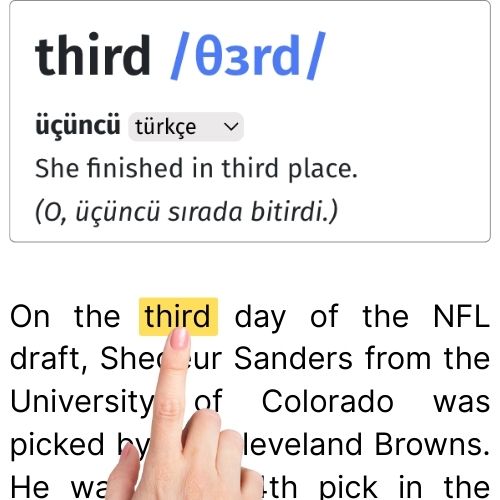Merak ettiklerin burada bitmesin!
Peki ya o sınırı tamamen kaldırsak? Hem de yalnızca ayda bir kahve fiyatına?
Premium'a geç

Several important conservatives on the Supreme Court said on Wednesday that they might support Planned Parenthood in a fight with South Carolina. South Carolina took away Medicaid money from Planned Parenthood because it gives abortions.
The case is not about abortion directly. Laws already say Medicaid cannot pay for abortions. But it became part of the big national talk when South Carolina removed Planned Parenthood from its Medicaid program in 2018.
The liberal judges seem to agree with Planned Parenthood. They think people should be able to sue states that cut money to the group. Some important conservatives, like Chief Justice John Roberts and Justice Amy Coney Barrett, also might support Planned Parenthood. They are worried about letting people sue too much over federal spending laws.
Barrett asked hard questions. She gave an example about wanting to see a doctor but the state said no. She said, “That’s the provider of my choice,” but “there’s no way for me to say you’re stopping me from seeing my doctor.”
A decision from the Supreme Court is coming by the end of June. This decision could change how patients get care at Planned Parenthood clinics. It might make other Republican governors cut money to Planned Parenthood too.
Justice Elena Kagan is worried that states could make many rules about who can provide care. A state could stop providers that give birth control or gender care. Democratic states could also make rules against providers that do not give those services.
Kagan said, “Every state could split up the world by providers like that.” She thinks this is not what the law is for.
Justice Brett Kavanaugh, a conservative judge, asked lawyers to explain when people can sue to enforce rules and when they cannot. He said, “Congress makes rights, not the court.” He added that the court is careful about letting people sue in other cases.
The case has a lot of attention from groups that care about abortion. The South Carolina health director will be at the Supreme Court with a group that helped end Roe v. Wade in 2022.
Many protesters for and against abortion were at the Supreme Court on Wednesday. This was one of the biggest crowds this term.
The issue is an order from South Carolina Governor Henry McMaster in 2018. He took away Medicaid money for two Planned Parenthood clinics. The governor said this money was a tax help for abortion.
McMaster’s order also stopped patients from getting other services from Planned Parenthood. A patient named Julie Edwards, who has diabetes, and Planned Parenthood South Atlantic sued the state. They said federal law lets Medicaid patients see any doctor who will help them.
Catherine Humphreville, a lawyer at Planned Parenthood, said, “It’s not about abortion. It’s about people getting basic services like birth control and cancer screenings. Many patients cannot get these services.”
If the court supports South Carolina, other conservative governors might also cut Planned Parenthood from Medicaid. This would stop patients from getting those services. Sonia Suter, a law professor, said this would have a “huge impact on access to care.”
She said this could limit access to birth control. “This will lead to more unplanned pregnancies,” she said.
Groups against abortion have sent many papers to the Supreme Court. They argue that Medicaid money to Planned Parenthood helps pay for abortions. South Carolina has made a law to ban most abortions after six weeks of pregnancy.
Katie Daniel, a lawyer with Susan B. Anthony Pro-Life America, said, “By filing this lawsuit, they made it an abortion case.” She said that stopping Medicaid payments to Planned Parenthood does not mean women cannot get birth control or health care. “That’s not true,” she said.
The legal issue for the court is if Medicaid patients can sue to enforce rules in spending laws. The Supreme Court has been careful about this in the past. But two years ago, a majority found such a right in a related case.
That case was about a nursing home patient whose wife sued for bad care. The court said the law gave her the right to sue.
Barrett wrote separately to say that while she agreed with the outcome, the court should be careful before letting people sue over other spending laws.
Critics say that without letting people sue, it would be hard to enforce rules in spending laws. The federal government could cut Medicaid money to a state for not following rules, but that is hard to do.
President Donald Trump’s administration told the Supreme Court in February that it supports South Carolina. This is different from the Biden administration. Biden’s Justice Department said in a note that the Medicaid rule would let Americans sue.
Some liberal justices asked a lawyer from the Trump administration about this change. The justices do not like when the Justice Department changes its position, but it happens often.
South Carolina has lost its case to defend the governor’s order in court many times. A court sided with Planned Parenthood last year. But the state thinks the Supreme Court’s decision in the nursing home case could help them.
South Carolina told the Supreme Court that letting people sue would hurt the relationship between states and the federal government.
The state said, “The court has set a high bar for recognizing private rights in spending laws,” and the rule does not meet it.
This story has been updated after the arguments.